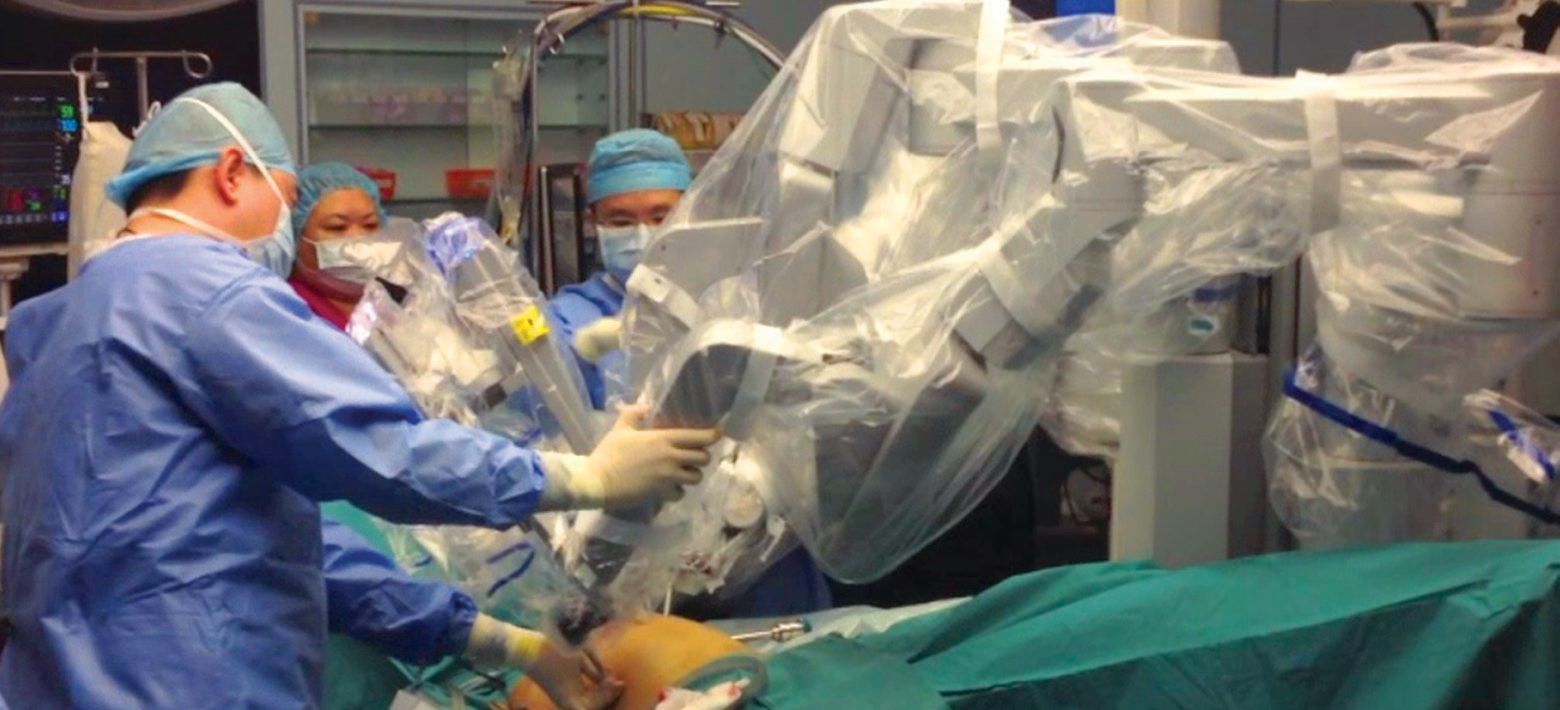Mount Elizabeth Novena Hospital #10-48/49
Treatment Options for Different Stages of Cancer
The incidence of colorectal cancer in Singapore continues to rise. Based on the Singapore Cancer Registry (dated 2006-2010) it is the number one cancer suffered in men, and number two in women.
Colorectal cancer has quickly become a massive problem as too many people have little to no knowledge on how to treat it. Fortunately, there are several tailor-made surgical procedures to treat it.
As a simplified walk-through, diagnosis of colorectal cancer is confirmed via biopsy performed during colonoscopy. The extent of the disease is then determined with a computer tomographic (CT) scan of the chest, abdomen and pelvis. Positron Emission Tomography (PET) and magnetic resonance imaging (MRI) are also used in certain cases.
Colorectal cancer staging is based on the TNM system, which identifies:
- How deep the tumor has invaded the wall of the colon.
- If and to what extent the surrounding lymph nodes are involved.
- If it has spread to other organs (a process known as metastasis).
At different stages of the cancer, different options are available to best treat the disease. At the earliest stage, where the cancer is found only in the innermost lining of the colon, treatment usually involves local excision to remove the tumor and a small amount of surrounding tissue. Thanks to technological advances in fibre-optics and video processing, this can be performed through the colonoscope using forceps, wire snares and electrocautery or through endoscopic submucosal dissection (ESD), where a special type of microknife is inserted through the scope to allow the surgeon to safely remove the affected region.
For stage one cancers that have spread beyond the inner lining of the colon to the second and third layers. Stage two cancers which extend through the muscular wall of the colon and the surrounding lymph nodes are not involved with cancer cells, the optimal treatment is surgery. This involves an operation that removes the segment of colon affected - together with the surrounding lymph nodes - and then joining the two ends of the colon back together to re-establish continuity of the colon. In this present day and age, these operations are almost routinely performed using minimally invasive techniques (laparoscopic surgery) and involves the insertion of several ports sized 0.5 to 1.0cm in diameter through several sites on the abdomen. The extent of operation is similar if not better than the conventional open technique of the past.
Technological and surgical advances have now even allowed for laparoscopic instruments to be inserted into one site instead of multiple sites. This is known as single site laparoscopic surgery and is suitable for well-selected types of colorectal cancers. An even more recent breakthrough is the use of robotic technology to complete these operations. The modern day da Vinci Si robotic system provides high-definition images in 3-dimensions for the surgeon and wrist-like movements of the surgical instruments inserted through small ports on the abdominal wall. All these make for more precision, superior stability and visualization.
Stage 3 cancers will have spread outside the colon to one or more surrounding lymph nodes. In addition to the treatment of surgical resection as mentioned above, patients will also require chemotherapy. External radiation may also be needed if the tumor is large and invades the tissues surrounding the colon.
Radiation plays an integral role particularly in the treatment of rectal cancers where it can be used before or after surgical resection. This has allowed colorectal surgeons to save the anus in most cases of rectal cancer.
Stage 4 cancers have spread beyond the colon to other organs of the body, most commonly to the liver or the lungs. Also known as a “metastatic” state, the treatment of these are varied and may include removal of the cancer surgically if it causes symptoms. Chemotherapy plays a central role in patients with metastatic colorectal cancer. This serves to control the spread of the cancer, relieve symptoms and even result in shrinkage. At times, complete resolution of the cancer may even be achieved.
In selected metastatic colorectal cancers, the surgical option is available. When metastases is confined to the abdominal cavity, it is at times possible to surgically remove all visible cancer cells (cytoreductive surgery), followed by the instillation of heated chemotherapy into the abdominal cavity to further improve control, reduce disease recurrence and prolong survival.
The proper treatment option employed in patients with colorectal cancer is essential in ensuring good outcomes and optimal survival. An experienced surgeon, combined with an informed patient and a skilled multispecialty team approach, is now considered to be the standard of care. At Colorectal Clinic Associates, we provide all the above treatment options, together with our partners in medical oncology, radiation oncology, urology and gynecology amongst others. This is essential to ensure highest standards of care quality in treatment.







